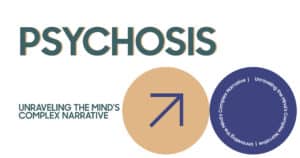Understanding PTSI vs PTSD
Post-Traumatic Stress Disorder (PTSD) is a diagnosable disorder that occurs after exposure to trauma. It may follow a terrifying event such as a natural disaster, sexual trauma, or combat-related experience. PTSD is marked by intrusive thoughts, avoidance behaviors, and psychological symptoms that disrupt daily life.
PTSD often brings physical symptoms like insomnia, headaches, and fatigue. It can also lead to emotional trauma responses such as anxiety and suicidal behavior. This mental health condition affects both the body and the brain.
Historical Perspective on PTSD Classification
PTSD was officially recognized in 1980 as a psychiatric disorder. It emerged in the aftermath of the Vietnam War and was initially thought to affect only combat veterans. Over time, clinicians found that PTSD also stemmed from domestic violence, childhood abuse, and sexual violence.
This mental health diagnosis helped validate the experiences of trauma survivors. However, the “disorder” label created barriers for individuals seeking care due to mental-health-related stigma.
Common Misconceptions About PTSD
Some people believe PTSD only impacts military veterans. In truth, PTSD affects anyone exposed to catastrophic events or emotional trauma. It does not require combat exposure.
Another common myth is that PTSD is a sign of weakness. In reality, it’s a biological injury to brain physiology resulting from trauma. PTSD reflects the brain’s attempt to survive overwhelming experiences.
What is PTSI?
Post-Traumatic Stress Injury (PTSI) is a term gaining support from mental health clinicians and military communities. It reframes PTSD not as a mental disorder but as a biological trauma or bodily injury. The term focuses on injury to brain physiology rather than labeling someone as mentally ill.
PTSI suggests trauma has physical effects on the brain, like a physical injury to the body. Many professionals now view post-traumatic stress as a trauma-induced condition with medical and biological consequences.
Differences in Perception: PTSI vs PTSD
PTSD implies a chronic psychiatric disorder. PTSI, by contrast, frames the condition as an injury that can heal. This shift changes how both professionals and the public understand trauma-related struggles.
Survey responders and anonymous survey results show that individuals prefer the injury model. An online survey of combat veterans revealed decreased stigma when “injury” was used instead of “disorder.”
Key Differences Between PTSI vs PTSD
Conceptual Differences
PTSD emphasizes psychological symptoms and mental health disorders. PTSI stresses the biological trauma and the impact of trauma on the brain. PTSD falls under behavioral health disorders, while PTSI supports a view aligned with physical injury and emotional response.
PTSI does not replace PTSD as a diagnostic term. However, it changes how trauma-related experiences are described and understood.
Treatment Implications
The injury framing supports interventional treatments like stellate ganglion block treatment. It also encourages the use of biological treatment methods alongside psychotherapy.
At Treat MH Tennessee, both PTSD and PTSI are addressed using evidence-based treatment and rehabilitation services. Our competent treatment team understands how language shapes adherence to treatment recommendations.
Impact on Stigma and Access to Care
Labeling trauma as an injury reduces mental-health-related stigma. Many diagnosed individuals avoid care because “disorder” implies something permanent or shameful.
By using the term Post-Traumatic Stress Injury, clinicians can help reduce barriers for individuals who would otherwise avoid treatment. Treat MH Tennessee supports efforts to expand access to care by changing how we talk about trauma.
Treatment Approaches for PTSD and PTSI
Cognitive Processing Therapy
Cognitive processing therapy (CPT) is a common treatment method that targets negative beliefs after trauma. It helps individuals reframe thoughts and reduce emotional trauma responses.
This type of therapy is especially effective for trauma survivors struggling with shame or blame. At Treat MH Tennessee, CPT is part of our standard treatment options.
Prolonged Exposure Therapy
Prolonged exposure therapy involves repeated, controlled exposure to traumatic memories. This helps reduce avoidance behaviors and normalize emotional responses.
This approach to treatment can be especially helpful for combat-related PTSD and survivors of sexual trauma. We offer this therapy under licensed supervision in a supportive environment.
Trauma-Informed Care Approaches
Trauma-informed care emphasizes safety, empowerment, and understanding of the context of trauma causing psychological harm. It avoids retraumatization and helps patients feel respected and heard.
At Treat MH Tennessee, our trauma-informed care model guides every step of treatment. Care coordinators and Care Advocates help patients receive personalized support across all services.
The Role of Terminology in Mental Health
How Language Affects Perception
Words like “disorder” and “injury” have powerful effects. Describing someone as having a medical condition or biological injury removes blame and promotes understanding.
Using accurate terms is key to reducing the negative impact of labels. Many community awareness initiatives focus on reframing PTSD as a treatable condition rather than a lifelong illness.
Benefits of Reframing Disorders as Injuries
Reframing PTSD as PTSI positions it alongside other physical injuries. Like a broken bone, PTSI implies healing is possible with proper medical treatment and care.
This framing supports treatment-seeking behavior and helps individuals recognize symptoms early. Treat MH Tennessee uses this model to engage those facing trauma-induced conditions.
Potential Impact on Treatment-Seeking Behavior
Describing symptoms as the result of injury may lead to increased treatment engagement. It also helps reduce shame and self-blame, especially among Military veterans and first responders.
Our programs in Tennessee provide treatment options for PTSD, PTSI, depressive disorder, anxiety disorder, and substance use disorder. We work to create a space where patients feel safe to explore mental health challenges.
The Importance of Advocacy and Awareness
Roles of Advocates in Changing Perceptions
Advocates promote the use of PTSI as a more accurate term. Many veterans and clinicians argue that calling it an injury removes a key barrier to care.
Care Advocates at Treat MH Tennessee are trained to support trauma survivors by using language that promotes healing. Their efforts help bridge the gap between diagnosis and access to care.
Initiatives to Educate About PTSI vs PTSD
Educational programs target both clinicians and the public. Community sample studies show that contact interventions and information campaigns improve understanding.
Efforts across Tennessee include workshops, online resources, and anonymous survey research on stigma and mental health. Treat MH Tennessee partners with organizations to spread awareness of post-traumatic stress conditions.
How Reducing Stigma Helps Vulnerable Groups
Stigma is a key barrier for populations impacted by sexual abuse, childhood abuse, and domestic violence. Many avoid treatment due to fear of judgment or misunderstanding.
By emphasizing the biological causes and injury model, these individuals are more likely to seek mental health care. Treat MH Tennessee offers support for those facing mental health challenges in the wake of catastrophic events or discrete events that altered their lives.
Why Language Matters in Tennessee Mental Health Treatment
In Tennessee, mental health care is evolving. Using terms like Post-Traumatic Stress Injury instead of disorder helps remove the mental-health-related stigma that blocks people from healing. Our team at Treat MH Tennessee sees this shift as critical.
We offer effective treatments for post-traumatic stress using both psychological and biological interventions. Whether a person has experienced combat, sexual trauma, or COVID-19-associated PTSD, our programs are built around understanding, healing, and clarity.
If you or someone you know is struggling with the aftereffects of trauma, Treat MH Tennessee offers an approach to treatment rooted in clinical criteria and patient respect. We specialize in innovative treatments, Chemical dependency treatment, and rehabilitation for a range of Mental Disorders.
Reach out today. Healing starts with understanding—and sometimes that starts with one word: injury.
FAQ's
Anyone experiencing unusual thoughts, sensory changes, or social withdrawal—especially teens and young adults—should consider screening.
Most screenings take 15–30 minutes and may involve questionnaires or short interviews, depending on the setting.
Yes, many providers offer remote screening options. Treat MH Tennessee provides phone-based assessments for added accessibility.
Not necessarily. A positive screen indicates risk and the need for further evaluation by a mental health professional.









